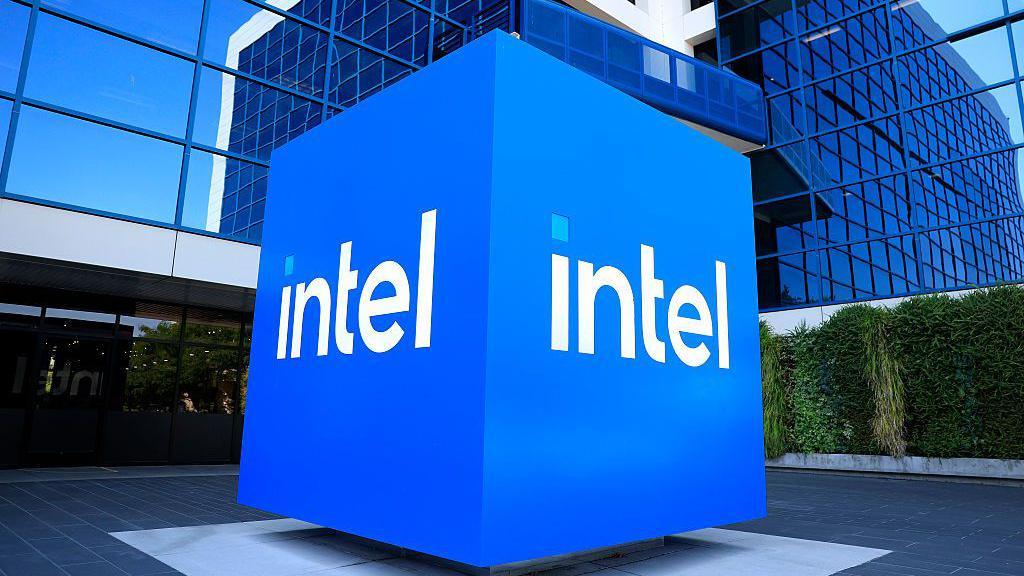U.S. Secretary of Commerce Howard Lutnick announced Friday that the federal government will acquire a 10% equity stake in American chip manufacturer Intel.
“This historic agreement strengthens U.S. leadership in semiconductors, which will both grow our economy and help secure America’s technological edge,” Lutnick stated in a post on X, accompanied by a photograph of himself with Intel CEO Lip-Bu Tan.
President Donald Trump initially disclosed the agreement earlier on Friday during remarks delivered in the Oval Office, hailing it as a “great deal” for the company.
Shares of the Santa Clara, California-based chipmaker experienced a surge of over 5% on Friday following the announcement.
According to Intel, the U.S. government will invest $8.9 billion in Intel common stock.
The funding is expected to originate from previously awarded but unpaid grants, including those allocated under the U.S. CHIPS and Science Act, enacted during President Joe Biden’s administration.
“As the only semiconductor company that does leading-edge logic R&D and manufacturing in the US, Intel is deeply committed to ensuring the world’s most advanced technologies are American made,” Mr. Tan affirmed in a statement.
“President Trump’s focus on US chip manufacturing is driving historic investments in a vital industry that is integral to the country’s economic and national security,” he added.
The CHIPS Act was enacted with the objective of bolstering chip manufacturing within the United States.
Intel has faced challenges in recent years in expanding its chip capacity, falling behind competitor Nvidia, whose market capitalization has surpassed $4 trillion, while Intel’s has remained around $100 billion.
The former Silicon Valley leader has struggled to capitalize on the growth of mobile technology and, more recently, artificial intelligence, where Nvidia has established a dominant position.
Intel had recently been a target of criticism from U.S. President Donald Trump.
Earlier this month, Trump called for Mr. Tan’s immediate resignation, citing concerns about his ties to China.
Trump described Mr. Tan as “highly conflicted” due to alleged investments in companies with ties to the Chinese military, according to U.S. authorities.
Mr. Tan refuted these claims as “misinformation” in a memo to Intel staff, defending his actions and stating that he has “always operated within the highest legal and ethical standards.”
Mr. Tan is a U.S. citizen, born in Malaysia and raised in Singapore.
It is legal for Americans to invest in Chinese firms.
Trump’s criticism followed a letter from Republican Senator Tom Cotton to Intel’s board, raising similar concerns and questioning the company’s ability to be a “responsible steward of American taxpayer dollars and to comply with applicable security regulations.”
Mr. Tan met with President Trump at the White House following the president’s remarks.
Friday’s announcement follows White House Press Secretary Karoline Leavitt’s earlier description of the proposal as “a creative idea that’s never been done before.”
The Trump administration recently mandated that Nvidia and AMD provide the government with 15% of the revenue from AI chip sales to China, according to reports.
While this approach is considered unconventional, Jacob Feldgoise, a Senior Data Research Analyst at Georgetown University’s Center for Security and Emerging Technology, drew parallels between the equity stake and previous grant funding to Intel.
“It’s still in service of the same overall objective which is taking a more direct role in private markets to advance US economic and national security objectives, particularly around maintaining technological leadership – or really regaining it – when it comes to semiconductor manufacturing,” Mr. Feldgoise told the BBC.
The agreement is considered unusual in the modern era, but not unprecedented.
During the Great Financial Crisis in 2008, the U.S. government acquired a majority stake in automaker General Motors, which was on the verge of bankruptcy protection.
The government eventually divested its position, incurring a loss of approximately $10 billion.
Mr. Feldgoise noted that the Trump administration pursued a similar strategy earlier this year in an agreement with MP Materials, a Nevada-based rare earth metals mining company.
That agreement has faced scrutiny from public-interest watchdog groups following revelations that the Department of Defense relied on a Cold War-era law to bypass procurement and contracting regulations.
Sign up for our Tech Decoded newsletter to follow the world’s top tech stories and trends. Outside the UK? Sign up here.

